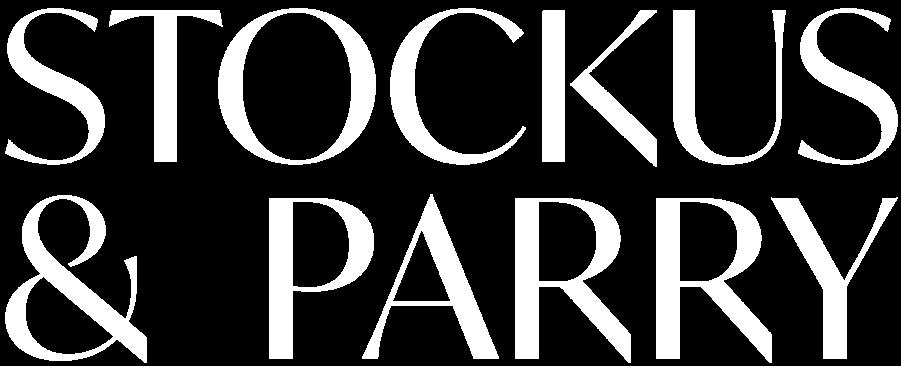








As we stand here on the threshold of the new year, four more seasons behind us, we are inclined to take pause, and reflect upon the past year. 2022 marked yet another in a series of remarkable years for both our economy and Real Estate here in the Capital and indeed across Canada. January 2022 had seen COVID unleash a torrent of demand on global markets, which had become costly to supply. The writing was on the wall amongst most economists and experts: Rate hikes were coming. The goal which the Bank of Canada (BoC) had in mind was to see inflation fall to around 3.00% by December.
Our economy was doing well, better than expected, in fact, with a strong growth forecast. In February, our job market was strong. Unemployment dropped to 5.50%. Then, on February 24th, Canadians watched in horror as Russia advanced into Ukraine. On March 11th, the BoC increased its overnight interest rate from 0.25% to 0.50%. The speculation was an end-of-year high of as much as 1.75%; however, by the month-end sentiment had increased to expect closer to 2.25%. In April, GDP data showed that our economy had grown 3.30% in the first quarter. However, news that inflation was now 6.80% overshadowed any optimistic
forecasts. As a haven in uncertain times, investors began turning to the U.S. dollar, boosting its value relative to the Canadian dollar. May had the national inflation rate at 7.70%. This was the highest in nearly four decades. Global supply shocks raised food prices and the Russia-Ukraine war kept investors nervous and markets volatile.
In June, the BoC raised its overnight interest rate by 0.50% for the second consecutive month to 1.50%. The bank also clarified that more hikes were coming, and to expect a year-end rate of 3% or higher. In July, the second quarter GDP numbers showed the economy grew at a rate of 3.30%, higher than the first quarter. Retail sales were down 2.50% from June to July and the BoC, true to their word, on July 12th, delivered a 100 basis point rate hike, bringing the overnight interest rate to 2.50%. By August it was clear that inflation had become that unwelcome guest who wouldn’t leave, now at 7.60%. On the 6th of September, the BoC brought its overnight rate up 0.50% to 3.25%.
October had the BoC hike the overnight rate by another 0.50%, but in anticipation of a 0.75% increase in the U.S. federal funds rate. The Canadian dollar continued to drop relative to the U.S. Dollar. By October, it had lost 10% against the USD over the year, making U.S. imports increasingly more expensive. November continued the trend of uncertainty and market volatility into December, which had the BoC move their overnight interest rate up another 0.50%, ending the year at 4.25%. Not ten months prior, interest rates were at 0.50%…
These rate hikes of 2022 have had a dramatic effect on the real estate market. We expect this to continue to weigh on the economy into 2023 as the lagging effects of last year’s hikes filter through. Hopefully, after these sig-

nificantly rapid rate hikes, we will see a pause allowing the economy to recalibrate and let inflation continue its downward trend over 2023. Interesting dynamics playing out as BoC changed their language coming out of their December meeting, signalling its shifting toward data-dependant decisions, which is a compromise of sorts.

News out of Statistics Canada at the time of writing is the country has added 104,000 jobs last month with the unemployment rate down to 5.00% in December from 5.10% in November. While job growth is certainly great news, it is also, unfortunately, not exactly an indicator of a shrinking or even stabilized economy. With the BoC taking a very data-dependant, facts-forward approach, it is likely that we will see yet another rate increase as they meet again on January 25th.
Effective January 1st, the B.C. Government has implemented the new mandatory Home Buyer Recession Period, also known as the “Cooling-Off Period”. British Columbia is the first province to require a three business day cooling-off period for buyers after they have signed a purchase agreement/contract. It gives a protection period to buyers who, during fast-moving real estate markets, are willing to (or find it necessary to forgo contract conditions, allowing time, for example, to secure financing, or conduct a building inspection. These extra days would give buyers time to consider if the purchase is right for them. As is often the case in legislative adjustments - reactionary rather than predictive, the HBRP fixes a problem we no longer have. Our current market allows ample time for buyers to view a home multiple times prior to presenting an offer, and indeed, the current expectation is for a buyer to proceed with a proper course of due diligence. Conditions allowing time for obtaining financing, conducting inspections, and even selling an existing home are commonplace in the current market.
There is a financial penalty to a buyer if they back out of the sale within the 3-day rescission period, a cancellation fee of 0.25% of the agreed upon purchase price which is to be paid directly to the Seller. If you purchase a home for $1,000,000, the cancellation fee would, for example, be $2,500.
Even in a robust market, three business days is not enough time to make any difference in a transaction beyond providing an “out” should buyers get cold-feet. We should note that it takes much longer than three business days to schedule building inspections, appraisals and other considerations for proper due diligence. Our British Columbia Real Estate Association made 34 recommendations to the B.C. Government, including a five business day mandatory listing period for properties to help prevent preemptive aka “bully offers”. Our industry felt that this was reasonable as it gave the benefit of time to everybody before anyone puts pen to paper.
As of January 1st, the Federal Government has instituted a nation-wide ban on foreign purchasers of residential property in Canada. A move the Government claims is to help make housing more affordable; a move that feels more political than economic. This is unlikely to impact affordability given the extremely small share of the real estate market that makes up non-resident buyers. Media has convinced the public these past few years that foreign investment and foreign money and speculative purchasing have been a principal element in driving up home prices. Rather, low interest rates and extremely low housing supply are the true catalysts behind our provinces’ unprecedented housing crisis.
In Victoria, only about 1.60% of transactions in 2022 involved a foreign buyer. This represents a drop from 3.00% in 2017, which the Provincial Government attributes to its new taxes on non-residents, speculators, and empty homes.



There are exemptions to this ban: International students and foreign workers can purchase with caveats. International Students can only purchase a property for a maximum of $500,000 and foreign workers have had to work in Canada for three out of four years prior to purchasing a property. Foreign nationals with temporary resident status, refugees, diplomats, consular staff and members of International organizations can also buy properties without further restrictions. Properties in less populated areas are also exempt - recreational properties such as cabins, cottages and other vacation homes. Criminal convictions and fines of up to $10,000 are in place for Lawyers and Realtors who help a non-residents purchase a property. Because of this, consumers should expect both these professions to ask more probing questions and require more documentation concerning proof of permanent residency and/or citizenship.
2023 will also see the introduction of the provincial Housing Supply Act with the stated intention of providing a framework for housing targets for specified municipalities, and provides the Government then ability to take “certain actions” if municipalities do not meet housing targets. This legislation allows the Province to impose several requirements upon municipalities in its seeking to reach those housing targets. The Province can intervene in a municipality’s bylaw-making and permit issuing powers. These housing targets will come with deadlines and the Province will be closely scrutinizing municipal actions related to zoning bylaws, official community plans, and permitting regimes. While some of this may sound draconian, the intention is to speed up housing development by allowing the Province to set housing targets in municipalities where demand and projected growth are highest. The legislation will encourage municipalities to reduce barriers that slow down construction, such as updating zoning bylaws and

streamlining the development approval process. The Act will give the province compliance powers as a last resort in making inflexible municipalities create better conditions for housing construction. We expect this new legislation to take effect late second, or early third quarter of 2023.

Premiere David Eby has signalled immense reforms to increase housing supply through interventionist policies. Looking to Municipalities that control zoning, we could see Single Family zoning replaced with up to 3 units on the same footprint within city centres, secondary accommodation (rental suites) made legal in every region of the province and most importantly, the streamlining of the new development permitting process to be substantially simplified. We have already seen Eby amend the Strata Property Act whereby a Strata may no longer restrict an occupants’ age except for a 55+ Retirement Community provision. In addition, Strata’s can no longer restrict owners from renting property to a long-term tenant.
2022 closed with 320 properties sold on the MLS system. 6,804 sold over the course of 2022, which is a marked reduction compared the numbers from the last few years. There were 1,688 active listings for sale at the end of December, a 20% decrease from November, but also a 158.9% increase from the end of December 2021. Market hesitation continues to be present on both sides of the table. Sellers remain entrenched or are waiting to see what direction the market shifts. Buyers are careful to weigh their options, keeping a close eye on lending rates, while waiting in the hopes of list prices buckling from the pressure. The absorption rate dropped from 5.0 months of inventory down to 4.3 months at the end of December. Showing a slight swing back to a seller’s market. The HPI benchmark price of a single family home in the Greater Victoria Area








was $1,135,600 at the end of December. It has dropped consistently from its peak in June of $1,301,300. Interestingly, both the December average and median sale price values had a significant uptick in December, demonstrating the HPI Benchmark’s quality as a lagging indicator.
We expect during the next several months, the media may paint less than a rosy picture concerning the Canadian real estate market. Despite the volatility that is likely in store, Victoria remains reasonably insulated because of its destination status and quality of life. Victoria remains appealing when compared to the rest of Canada. The dance between the buyers and sellers during this time will be interesting to observe. Buyers continue to face very limited inventory and sellers are learning to acclimate to the negative impact our higher interest rates are having on our buyers’ purchasing power. Our market ultimately is driven by supply and demand. Demand has yet to be satiated, as we continue to grapple with lack of inventory. Increasing that supply, it seems, is the only solution to the present predicament.
Now more that ever, we remain steadfast to you, our clients, in providing the most educated and thorough understanding in this time of uncertainty. If you would like to further the conversation on the current market, discuss buying/selling strategies or gain an understanding of the market value of your home, we would be delighted to hear from you.

Being a part of our boutique brokerage means benefiting from the strength of the whole. It means coming together with fellow real estate professionals who are constantly rethinking industry norms and pushing themselves further through technology, design and service.

250.588.7933 terry.stockus@theagencyre.com theagencyre.com
Parry 250.634.8356 david.parry@theagencyre.com theagencyre.com

The Monthly Market Intelligence is written exclusively by David Parry and Terry Stockus with valued input from other market experts. While the information contained herein is believed to be accurate, the authors assume no responsibility for any errors or omissions. Not intended to solicit business from individuals currently under contract. An independently owned and operated licensee. © David Parry & Terry Stockus, 2023
It’s real estate without boundaries.
It’s real estate that moves you.